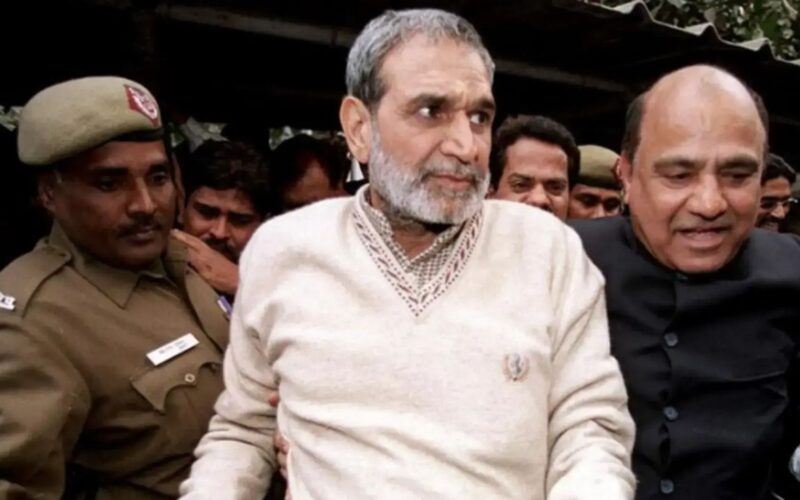New Delhi (National Times)– The prosecution has urged the court to hand down the death penalty to former Congress MP Sajjan Kumar, convicted for his role in the 1984 anti-Sikh riots. The Rouse Avenue Court had found him guilty of orchestrating the murders of Jaswant Singh and Tarundeep Singh in Delhi’s Saraswati Vihar on November 1, 1984.
Prosecution Calls for Maximum Punishment
During the sentencing hearing, Additional Public Prosecutor Manish Rawat pressed for capital punishment, stating that this was a “rarest of rare” case, in which innocent civilians were massacred solely due to their religious identity. Rawat argued that the scale of violence, which claimed 2,700 lives in Delhi alone, justifies the death penalty.
Special Judge Kaveri Baweja has scheduled the next hearing for February 21, allowing time for both the victims’ representatives and the defense to submit written arguments. Senior Advocate H.S. Phoolka, representing the victims, is expected to file his submissions, while the defense counsel, absent due to a lawyers’ strike, sought more time.
SIT Investigation & Long-Delayed Justice
The case against Sajjan Kumar was initially registered at the Punjabi Bagh police station but later transferred to the Special Investigation Team (SIT) formed on the recommendation of the Justice G.P. Mathur Committee. The SIT uncovered evidence of police manipulation in earlier investigations, finding that a charge sheet was prepared in 1992 but deliberately withheld.
On December 16, 2021, the court officially framed charges against Kumar, accusing him under sections related to murder, rioting, arson, looting, and criminal conspiracy. The prosecution alleges that Kumar instigated and led the violent mob, which burned down homes, looted property, and brutally attacked Sikh families, ultimately killing Jaswant Singh and Tarundeep Singh.
Defense Challenges Conviction
Advocate Anil Sharma, defending Kumar, has raised multiple objections, arguing that:
- Kumar was not named in the original FIR, and there was a 16-year delay in the witness identifying him.
- A previous conviction against Kumar in the Delhi Cantt riots case is still under appeal in the Supreme Court.
- Foreign legal principles on genocide should not apply, and Indian law must take precedence.
However, APP Rawat countered that the witness recognized Kumar only after seeing his photo in a magazine, dismissing claims of fabrication. Senior Advocate Phoolka further argued that the Delhi High Court had already classified the 1984 riots as a “crime against humanity”, emphasizing that these events were not isolated acts of violence but part of a larger orchestrated massacre.
Awaiting Final Verdict
Sajjan Kumar denied all charges when his statement was recorded in November 2023. However, based on SIT findings and witness testimonies, the prosecution asserts that he was directly responsible for instigating violence.
With the sentencing scheduled for February 21, this case remains a landmark moment in India’s legal battle for justice for the victims of one of the darkest chapters in the country’s history.

